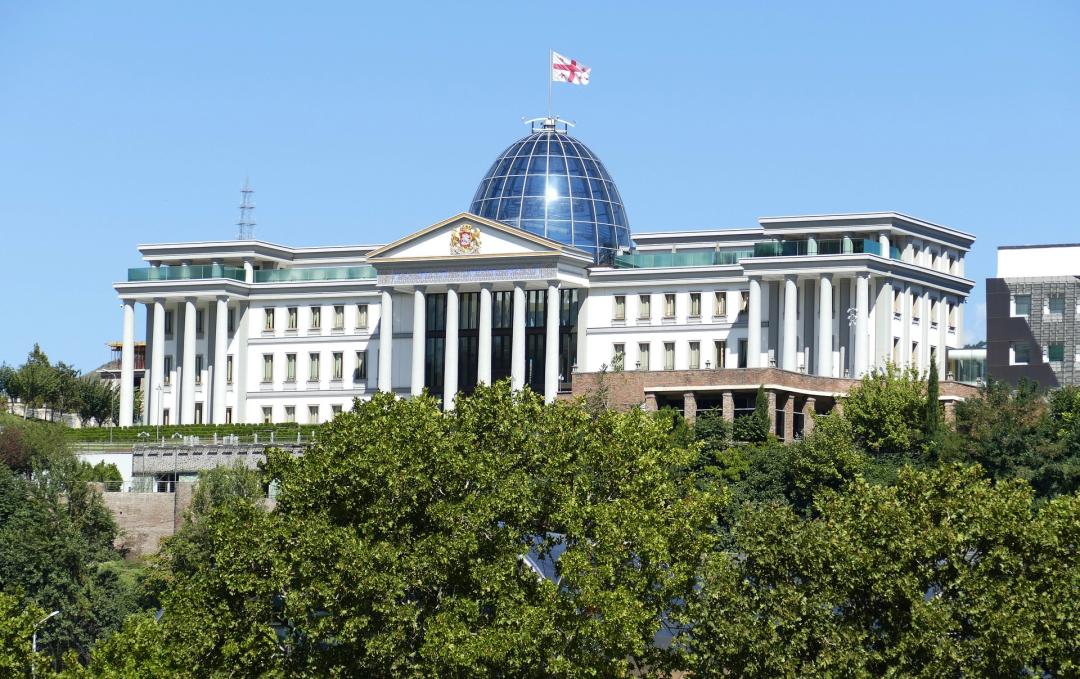
Georgian Dream's EU Policy Reversal Triggers National and International Backlash

On November 29, multiple Georgian institutions issued statements condemning the Georgian Dream (GD) government's decision to halt EU accession negotiations until 2028, highlighting contradictions with Georgia's Constitution and its historical aspirations for Euro-Atlantic integration.
During the day, fifty Defense Ministry staff signed a joint statement emphasizing the importance of the Euro-Atlantic path, citing loyalty to Article 78 of the Georgian Constitution, which mandates state institutions to ensure the country's integration into European structures. They criticized the GD’s decision, warning it could lead to international isolation, and acknowledged the role of Western partners in developing Georgia's defense capabilities.
Similarly, 150 Education Ministry employees signed a statement declaring GD's policy shift incompatible with Georgia's strategic interests. They reaffirmed their commitment to building a European education system that fosters equality, competitiveness, and democratic values.
In response to GD's announcement, the Parliamentary Assembly of the Council of Europe (PACE) issued a statement on November 29 expressing concern over the decision and the violent dispersal of protests. PACE warned that these actions could undermine democratic reforms and the rule of law in Georgia.
On the same day, President Salome Zourabichvili addressed the public in a video message supporting the protests across the country and emphasizing solidarity among public servants for Georgia's European future. Zourabichvili highlighted the peaceful nature of demonstrations in cities like Batumi, Kutaisi, and Telavi, urging law enforcement to refrain from violence and holding their leadership accountable for any abuses. She acknowledged the growing resistance movement within state institutions, including resignations and statements from Ministry of Foreign Affairs (MFA) staff, ambassadors, and other civil servants. She commended the protests by Defense Ministry employees and others, stating that their stand reflects Georgia's national interest and the need to maintain ties with European partners. The President called for the protection of protesting public servants from potential reprisals and underscored the importance of their continued service.
On November 30, 176 National Bank of Georgia employees joined the protests, stating that halting EU accession contradicted Georgia’s historic European aspirations and constitutional commitments. They highlighted their long-standing efforts to align Georgia’s financial sector with European standards, which have fostered sustainable economic growth.
European Parliament member Rasa Juknevičienė and other MEPs also initiated a letter urging the EU to impose sanctions on Georgian officials responsible for suppressing protests and democratic backsliding. Meanwhile, Dmitry Medvedev of Russia criticized Ukraine’s support for Georgian protesters, dismissing it as interference.
The Patriarchate of Georgia also commented, urging authorities and society to respect differing political views and avoid violence. The Church criticized both protesters and law enforcement for escalating tensions during the demonstrations.
In a televised address, Zourabichvili announced consultations with political and civil society leaders to manage the political crisis and called for new elections, arguing that the current parliament lacks legitimacy. She pledged to remain in office until a new, legitimate parliament elects her successor, emphasizing that renewed elections would restore Georgia’s independence and European trajectory.
On November 30, Salome Shapakidze, Georgia’s Ambassador to Lithuania, resigned amid a wave of ambassadorial departures following GD's foreign policy shift. She said on Twitter that serving Georgia's sovereignty and Euro-Atlantic aspirations was a privilege.
On December 1, Irakli Kobakhidze, GD Chairman, confirmed the resignation of Davit Zalkaliani, Georgia’s Ambassador to the US and former Foreign Minister (2018–2022). Kobakhidze claimed Zalkaliani faced significant pressure and addressed reports that newly appointed Foreign Minister Maka Botchorishvili dismissed Deputy Foreign Minister Teimuraz Janjalia. He reiterated GD's stance against halting EU accession, stating, "If the EU puts the opening of talks on the table, I will sign it today."
Kobakhidze criticized EU Ambassador Pawel Herczynski for allegedly participating in opposition-led disinformation campaigns. On US relations, Kobakhidze dismissed the Biden administration's temporary suspension of Georgia's strategic partnership, attributing it to internal US politics. He anticipated improved ties with a new US administration under Donald Trump. Kobakhidze accused protesters of systemic violence, commending police for maintaining order. He warned of strict legal consequences for offenders, rejecting the possibility of a "NatsMaidan" in Georgia, and called for an end to “liberal fascism.”
On the same day, protests escalated as citizens demanded reforms at the Georgian Public Broadcaster (GPB), calling for the resignation of its leadership and open airtime for opposition voices. GPB expressed readiness to host President Salome Zourabichvili but accused opposition media of provocation.
At a briefing, Zourabichvili emphasized Georgia's unwavering commitment to EU integration, denouncing GD’s suspension of accession efforts. She praised protests as constitutionally driven, uniting diverse groups across Georgia, and called for civil society and opposition support. She proposed a transitional period leading to new elections, urging the Constitutional Court to resolve the crisis. Zourabichvili criticized GD’s narrative, asserting that society correctly interpreted the government’s announcement as a pivot away from Europe. She highlighted resignations by diplomats as acts restoring trust in Georgia’s foreign service, contrary to GD's accusations of sabotage. The President called on the State Security Service to avoid provocations and urged caution among protesters. She also condemned restrictions on her appearance on GPB and reaffirmed her readiness for dialogue.
On December 2, the Ministry of Internal Affairs reported 224 arrests since protests began, with charges of petty hooliganism and disobeying police. Injuries included 21 officers on December 1–2 and 113 since November 28.
See Also


Mirzoyan Meets US Deputy Assistant Secretary Joshua Huck

Azerbaijani President Holds Talks with UAE and German Business Delegations on Economic Cooperation

Grigoryan Confirms Armenia’s Readiness to Dissolve OSCE Minsk Group Upon Peace Treaty Signing

Azerbaijani Official Warns of Ecological Risks to Caspian Sea, Similar to Lake Urmia and Aral Sea

